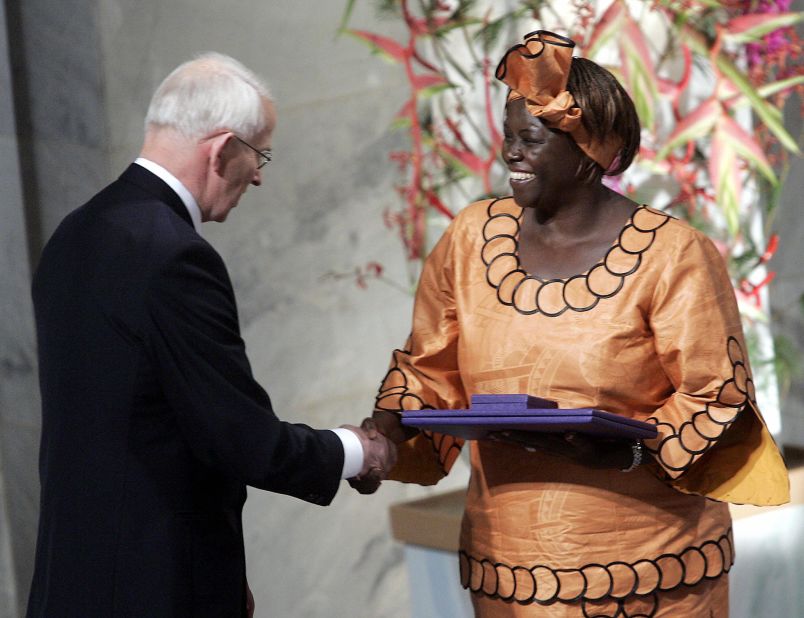In the vibrant tapestry of African history, few threads shine as brightly as the life of Wangari Maathai. A true visionary and change-maker, her remarkable journey has left an indelible mark on both the continent and the world.
In this blog article, we will explore the captivating biography of Wangari Maathai. Shedding light on her extraordinary achievements, challenges overcome, and lasting legacy.
Wangari Maathai Early Life and Education
Wangari Maathai was born on April 1, 1940 in Nyeri, Kenya. She was born into the steeped in the beauty of the African landscape. Raised in a rural community, she developed a deep appreciation for nature and a profound understanding of its interconnectedness with human well-being. This early connection to the environment would later blossom into a lifelong commitment to its protection.
Driven by a thirst for knowledge, Maathai defied societal expectations and pursued higher education. Breaking down barriers, she became the first woman from East Africa to earn a doctoral degree, obtaining a Ph.D. in biological sciences. This academic achievement not only empowered her but also paved the way for future generations of women to follow their dreams.
Planting Seeds of Change: The Green Belt Movement
Maathai’s academic expertise was not meant to be confined to the ivory tower. Witnessing the devastating effects of deforestation on her beloved Kenya, she knew she had to act. In 1977, she founded the Green Belt Movement, a grassroots initiative that empowered rural women to plant trees and restore degraded lands.
This simple act of planting seeds carried immense significance. The trees not only provided vital fuelwood and food security but also helped to combat soil erosion, improve water quality, and create sustainable livelihoods.
The Green Belt Movement’s impact quickly transcended borders. From a small Kenyan initiative, it blossomed into a pan-African movement, inspiring similar projects across the continent and beyond. Over 30 million trees have been planted to date, a testament to the transformative power of collective action.
A Nobel Recognition: Wangari Maathai International Recognition and Legacy
Wangari Maathai’s tireless efforts did not go unnoticed. Wangari received the Nobel Peace Prize in 2004. This made her the first African woman to receive the award.
This prestigious recognition was a powerful validation of her work, highlighting the inextricable link between environmental protection, sustainable development, and peace.

Maathai’s voice resonated not only in the environmental arena but also in the fight for democracy and human rights. She was a staunch advocate for women’s empowerment and actively campaigned against political corruption and violence. Her unwavering commitment to justice earned her respect and admiration from across the globe.
Empowering Women and Future Generations
Wangari Maathai recognized that true progress cannot be achieved without the full participation of women. She believed that empowering women and providing them with equal opportunities would lead to the betterment of society as a whole.
Through the Green Belt Movement and other initiatives, she encouraged women to take leadership roles. She also added that they become agents of change, and nurture the next generation of environmental stewards.
Maathai’s legacy extends far beyond the millions of trees planted. She has broken down gender barriers, paved the way for future generations of female leaders, and instilled in countless individuals the belief that one person can truly make a difference.
Conclusion
Wangari Maathai’s life story is a testament to the transformative impact one person can have on the world. Her unwavering dedication to environmental conservation, social justice, and women’s empowerment has left an indelible imprint on Africa and the global community.






